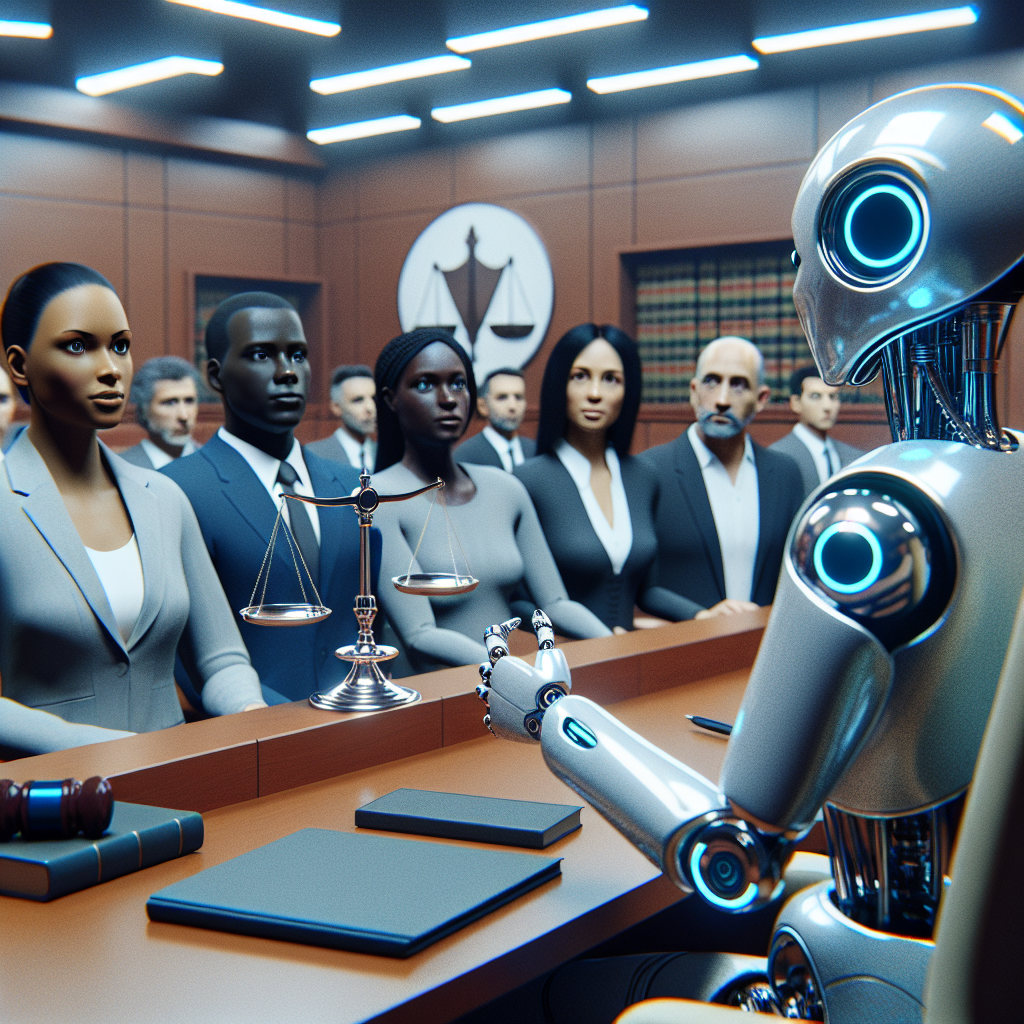The Rise of AI-Powered Legal Chatbots
In recent years, the legal industry has seen a significant rise in the use of AI-powered chatbots to streamline processes, improve efficiency, and provide better customer service. These chatbots are designed to assist both lawyers and clients in various legal matters, from answering basic legal questions to providing guidance on complex legal issues. With advancements in artificial intelligence technology, these chatbots are becoming more sophisticated and are poised to revolutionize the way legal services are delivered.
What are AI-powered legal chatbots?
AI-powered legal chatbots are computer programs that use artificial intelligence technology to simulate human conversation. These chatbots are designed to understand natural language and respond to user inquiries in real-time. They can be used for a wide range of legal tasks, including answering basic legal questions, providing legal advice, drafting legal documents, and even representing clients in court.
How do AI-powered legal chatbots work?
AI-powered legal chatbots work by analyzing the user’s input and using natural language processing algorithms to understand the meaning behind the text. They then search their database for relevant information and provide a response based on the best available answer. These chatbots can learn from previous interactions and improve their responses over time, making them more accurate and efficient.
What are the benefits of using AI-powered legal chatbots?
There are several benefits to using AI-powered legal chatbots in the legal industry. Some of the key advantages include:
1. Improved efficiency: Legal chatbots can handle a large volume of inquiries simultaneously, allowing law firms to provide faster and more efficient service to their clients.
2. Cost savings: By automating repetitive tasks, legal chatbots can help reduce operational costs and free up lawyers to focus on more complex and high-value work.
3. 24/7 availability: Legal chatbots can be available round-the-clock, providing clients with instant access to legal information and advice at any time of day or night.
4. Enhanced customer service: AI-powered chatbots can provide personalized and consistent responses to user inquiries, improving the overall customer experience.
5. Increased accuracy: Legal chatbots can access a vast amount of legal information and provide accurate and up-to-date responses to user inquiries.
6. Scalability: Legal chatbots can handle an unlimited number of inquiries simultaneously, making them ideal for law firms with a large client base or high volume of inquiries.
What are some common use cases for AI-powered legal chatbots?
AI-powered legal chatbots can be used for a wide range of legal tasks, including:
1. Providing legal information: Legal chatbots can answer basic legal questions, such as explaining legal terms, procedures, and regulations.
2. Drafting legal documents: Legal chatbots can help users draft legal documents, such as contracts, agreements, and wills, by asking relevant questions and guiding them through the process.
3. Conducting legal research: Legal chatbots can search through legal databases to find relevant case law, statutes, and regulations to support legal arguments.
4. Assisting with compliance: Legal chatbots can help businesses ensure compliance with relevant laws and regulations by providing guidance on legal requirements and obligations.
5. Managing client inquiries: Legal chatbots can assist law firms in managing client inquiries, scheduling appointments, and providing updates on case progress.
6. Resolving disputes: Legal chatbots can help parties in a dispute reach a resolution by providing information on legal options and facilitating negotiation.
How are AI-powered legal chatbots impacting the legal industry?
AI-powered legal chatbots are revolutionizing the legal industry by transforming the way legal services are delivered. These chatbots are helping law firms improve efficiency, reduce costs, and provide better customer service. They are also enabling lawyers to focus on more complex and high-value work, while automating repetitive tasks.
In addition, AI-powered legal chatbots are democratizing access to legal information and advice, making it easier for individuals and businesses to navigate the legal system. By providing instant access to legal information and guidance, these chatbots are empowering users to make informed decisions and take control of their legal affairs.
Overall, AI-powered legal chatbots are driving innovation in the legal industry and are expected to play a significant role in shaping the future of legal services.
FAQs
Q: Are AI-powered legal chatbots replacing human lawyers?
A: AI-powered legal chatbots are not replacing human lawyers but are complementing their work by automating routine tasks and providing better customer service. Human lawyers are still needed to handle complex legal matters and provide personalized advice to clients.
Q: Are AI-powered legal chatbots secure and confidential?
A: AI-powered legal chatbots are designed to prioritize security and confidentiality. Law firms and legal tech companies take measures to ensure that user data is protected and comply with legal and ethical standards regarding confidentiality.
Q: How can I access an AI-powered legal chatbot?
A: AI-powered legal chatbots are available through law firm websites, legal tech platforms, and mobile apps. Users can access these chatbots by visiting the website or downloading the app and interacting with the chatbot through text or voice commands.
Q: Can AI-powered legal chatbots provide legal advice?
A: AI-powered legal chatbots can provide general legal information and guidance but are not a substitute for personalized legal advice from a qualified lawyer. Users should consult with a lawyer for specific legal advice tailored to their individual circumstances.
Q: How accurate are AI-powered legal chatbots?
A: AI-powered legal chatbots are continuously learning and improving their responses based on user interactions. While they are generally accurate in providing legal information and guidance, users should verify the information with a lawyer or legal expert for critical decisions.
In conclusion, the rise of AI-powered legal chatbots is transforming the legal industry by improving efficiency, reducing costs, and providing better customer service. These chatbots are revolutionizing the way legal services are delivered and empowering individuals and businesses to navigate the legal system with ease. As technology continues to advance, AI-powered legal chatbots are expected to play an increasingly important role in shaping the future of the legal industry.

